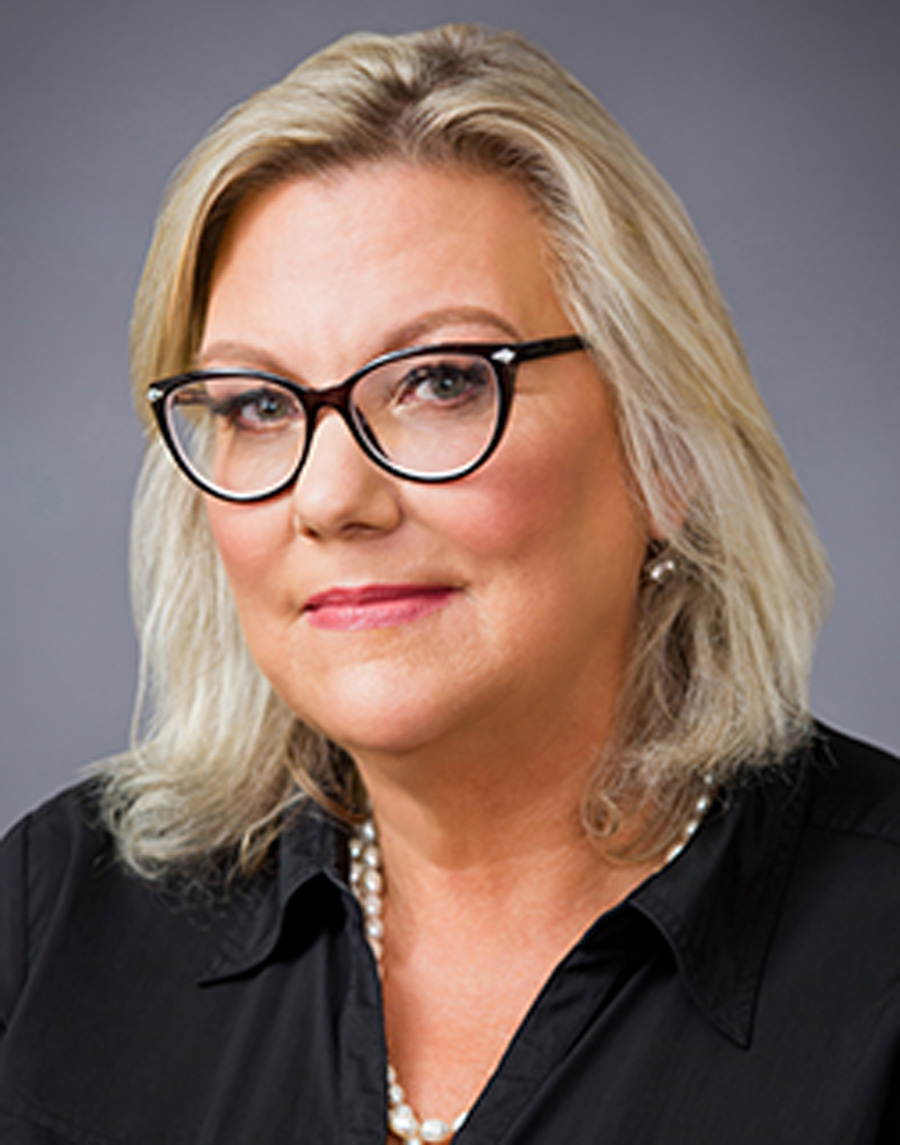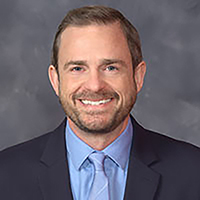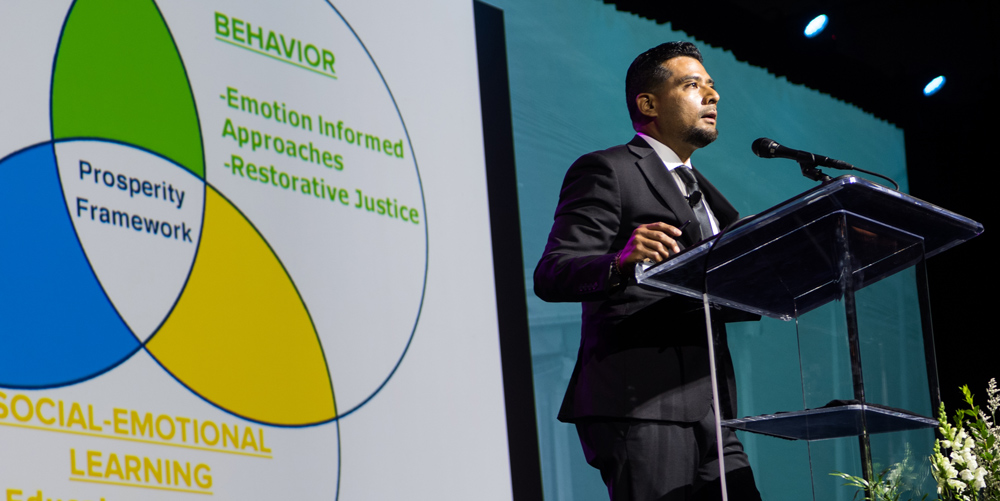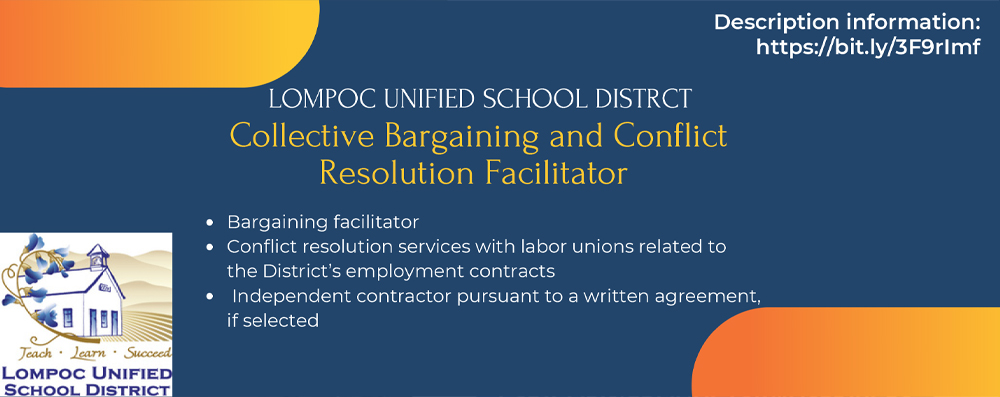budget
“As the state continues to experience record-high revenues, CSBA is pleased to see that reflected in the natural growth of the Proposition 98 guarantee,” CSBA CEO & Executive Director Vernon M. Billy said. “However, we continue to be concerned about base funding issues such as Local Control Funding Formula funding beyond just the cost-of-living adjustment, continued support for pensions, declining enrollment and transportation operational costs rather than the continued establishment of new, large categorical programs that may not support every community. These one-time funds will surely put governing boards in the position of having to eventually consider cutting services when they should be expanding them for students.”


The Golden Gavel Award honors individual school board members who exemplify best practices in effective governance and boardsmanship. Freeman was chosen from among nearly 5,000 school board members making up 977 school boards throughout the state.
“For more than 30 years, Karin has guided her district and helped to create a dynamic and supportive learning community that prepares students for successful futures,” said CSBA President Dr. Susan Heredia. “We are honored to recognize Karin’s exemplary efforts to improve student outcomes and well-being — an area of particular focus for her.”

Troy Flint | tflint@csba.org
Managing Editor:
Kimberly Sellery | ksellery@csba.org
Marketing Director:
Andy Rolleri | arolleri@csba.org
Staff Writers and Contributors:
Alisha Kirby | akirby@csba.org
Heather Kemp | hkemp@csba.org
Teresa Machado | tmachado@csba.org
Mike Ambrose | mambrose@csba.org
Graphic Design Manager:
Kerry Macklin | kmacklin@csba.org
Senior Graphic Designer:
Mauricio Miranda | mmiranda@csba.org
Dr. Susan Heredia | Natomas USD
President-elect:
Susan Markarian | Pacific Union ESD
Vice President:
Albert Gonzalez | Santa Clara USD
Immediate Past President:
Xilonin Cruz-Gonzalez | Azusa USD
CEO & Executive Director:
Vernon M. Billy
California School News (ISSN 1091-1715) is published 11 times per year by the California School Boards Association, Inc., 3251 Beacon Blvd., West Sacramento, CA 95691. 916-371-4691. $4 of CSBA annual membership dues is for the subscription to California School News. The subscription rate for each CSBA nonmember is $35. Periodicals postage paid at West Sacramento, CA and at additional mailing office. POSTMASTER: Send address changes to California School News, 3251 Beacon Blvd., West Sacramento, CA 95691.
News and feature items submitted for publication are edited for style and space as necessary.

The unprecedented rate of staff absences prompted by the spread of COVID-19 and related quarantine measures is taxing school systems to the limit — and beyond. Yet, through it all, school districts and county offices of education are standing firm and reinforcing our collective commitment to in-person instruction.
Previously, classified employees could be laid off at any time during the school year with at least 60 days’ notice, due to lack of work or lack of funds. With AB 438, the process for laying off permanent classified employees now mirrors the process for certificated employees. Except for employees whose positions must be eliminated as a result of the expiration of a specially funded program, permanent classified employees can only be laid off for the following school year if notified by March 15. While districts may still lay off classified employees due to lack of work or lack of funds, permanent classified employees have the right to request a hearing before an administrative law judge to determine if there is cause for their layoff. According to AB 438, a permanent classified employee includes an employee who was permanent at the time the notice or right to a hearing was required and an employee who became permanent after the date of the required notice.
Dr. Heredia took the reins of the presidency early at the end of May 2021, following the passing of Pleasant Valley USD trustee and CSBA President Suzanne Kitchens. Dr. Heredia is a professor of Education, Emerita at California State University, Sacramento and a lifelong educator and advocate of underserved children. The Sacramento native began her career as a bilingual teacher in the Sacramento City Unified School District and taught in the credential program at the University of California, Davis. She was also chair of the Bilingual Multicultural Education Department and Graduate and Professional Studies in Education Division at CSU Sacramento. An active member of CSBA, Dr. Heredia has served as CSBA’s Director-At-Large, Hispanic, as well as chair of the organization’s 2019 Annual Education Conference Committee. Dr. Heredia has also been a member of the association’s Policy Platform, Board Development, Bylaws, and Golden Bell Review committees, as well as CSBA’s Equity Network, Accountability Task Force, No Child Left Behind Task Force, Federal Issues Council and Governance Study Group. In 2021, Dr. Heredia was appointed to the California Commission on Teacher Credentialing where she represents school board members in CTC decisions regarding teacher preparation and more.

It is with a heavy heart that I share with you the loss of one our own, Teri Vigil, on Nov. 24, 2021. This news comes as a great shock to me and I imagine to you as well. Teri had an engaging, effervescent personality. She was so full of life, and light, and energy, it’s hard to imagine that she’s no longer with us. I will miss her warm personality and ever-present bubbly smile. To know Teri was to truly know someone who cared not only about the work she did, but the people around her. CSBA will continue to honor her as a model of service to family, community, public schools and students throughout the state.
As a trustee of more than 25 years in the Fall River Joint Unified School District, our resident expert on small school districts, a search consultant identifying superintendent candidates, a professional learning facilitator helping districts navigate the Local Control Funding Formula and Local Control and Accountability Plan process, and the primary author of the “Boardwise” column in CSBA’s magazine California Schools, Teri epitomized the values of CSBA. She was a board president, a colleague, a friend and a teacher who helped other school board members become better trustees through her work as a faculty member in our Masters in Governance program.

A collaboration of Code.org Advocacy Coalition, Computer Science Teachers Association and the Expanding Computing Education Pathways Alliance, the fifth annual report gives updates on national and state computer education policy, access and participation.
While the uptick in offerings shows progress by education leaders, policymakers and advocates, the fact that nearly half of high schools do not offer a single computer science class is “inadequate,” the organizations wrote.
Disparities in who has access to the subject have also been revealed via new data.

A recent report from Partnership for Children & Youth, Summer 2021: How California educators met the moment with re-engagement, reconnection, and reimagined learning, examined the state’s 2021 publicly funded summer learning programs, including the trends, best practices, challenges and innovative ideas through an analysis of statewide data, interviews with school leaders across 24 districts and media tracking.

I learned this from my father who worked for the U.S. Postal Service as a “labor custodian.” That was the title for a janitor. He was always telling me to make sure I went to college. After he was injured in an accident and my mother died, I was adopted at age five and moved into a new household with a new last name.
Probably these changes made me feel somewhat powerless. Not that I knew the word “power” at age 5. But I remember being very aware that the adults in my new family had something that, today, I would call power. Why? They had gone to college. They had degrees and careers.
At CCBE’sgeneral membership meeting in San Diego Dec. 3, members heard reports the organization’s 2021 accomplishments and learned about what’s ahead for 2022. The meeting also saw the election of new officers. Gina Cuclis of the Sonoma County Office of Education was elected President-elect. Hector Camacho of San Mateo COE was elected Vice President. This occurred after a surprising move by the other VP candidate, David Patterson of Placer COE. Patterson gave his speech first, encouraging members to vote for Camacho, saying CCBE should encourage younger and more diverse leadership.
Via a nomination from the floor, Karina Talamantes of Sacramento COE was elected Treasurer and it was announced that the CSBA Delegate Assembly had elected Mike Teasdale of Ventura COE as the Director-at-Large, County. The DAL also serves on the CCBE Executive Committee. Outgoing President Rick Shea of San Diego COE described 2021 as an eventful year due to the creation of CCBE’s computer science project, made possible by a donation from Zoom founder and CEO Eric Yuan, and the hiring of CCBE’s new program manager Samantha Archey.
Institute for New and First-Term Board Members
Equity Network Training
CCBE County Board Governance Workshop










